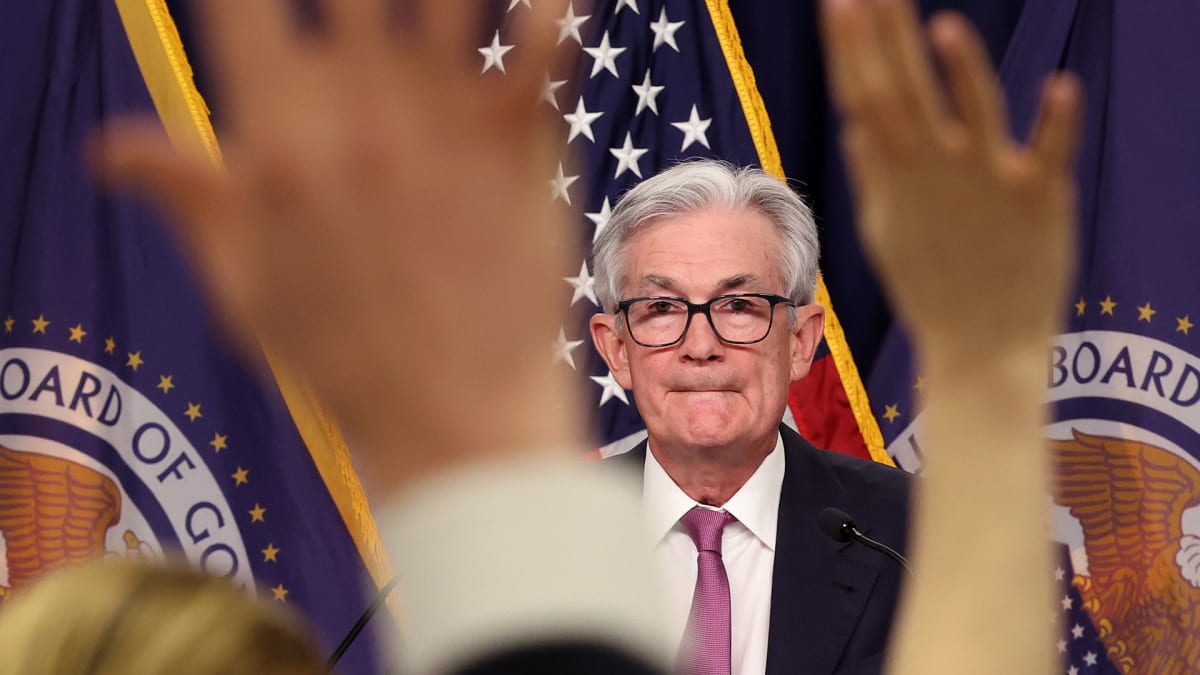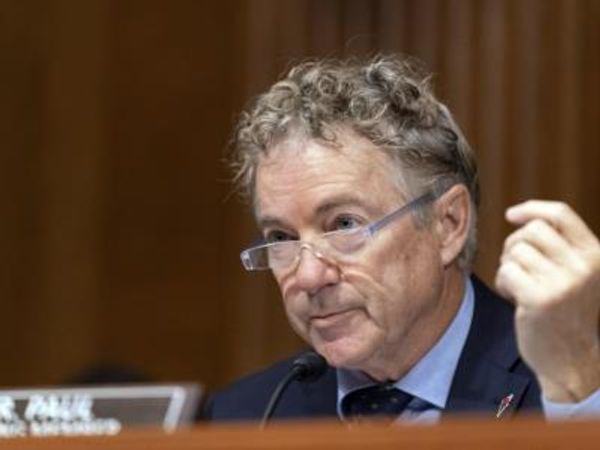
In the wake of a third regional bank collapse and signs the economy is slowing, the Federal Reserve's sentiment is shifting to become more dovish, economists and financial experts said.
After running the April minutes of the Fed meetings through a natural language processing model, the results demonstrate that the central bankers are "starting to turn more dovish," said Torsten Slok, chief economist of New York-based Apollo Global Management.
DON'T MISS: Fed Inflation Gauge Cools, But Sticky Core Prices Keep Rate Hike Bets In Play
"This sentiment suggests that we are approaching the peak in this rate hike cycle and that the Fed is worrying less about inflation and more about the tighter credit conditions and the associated ongoing slowdown in growth," he said.
The Fed is expected to increase interest rates for a 10th consecutive time Wednesda, taking the benchmark Fed funds rate above 5%, said Greg McBride, chief financial analyst for Bankrate, a New York-based financial data company.
“The Federal Reserve is expected to raise, but this could be the last or the last for awhile if the Fed chooses to sit back and evaluate inflation, the state of the economy and the cumulative impact of all the rate hikes,” he said.
The strength of the labor market has continued, but the "slower-than-hoped moderation in inflation pressures underscore the case for the Fed raising interest rates again on May 3," McBride said. "The Fed has shown a credibility issue on inflation and the way to dispel that is to see the job of restoring price stability through.”
Future Surprises Likely to be Dovish
With a tightening economy and credit conditions along with a few Federal Reserve members tilting dovish, "any surprises moving forward will likely to be dovish," Thomas Hayes, chairman of Great Hill Capital in New York, told TheStreet.
Since the Fed is expected to increase rates by 25 basis points on May 3, the central bankers will have reached their target terminal rate, he said.
"The surprise that few are positioned for would be if they declare a 'pause' to let the 500 basis points s of hikes work through the system," Hayes said. "Credit is tightening across the spectrum, wages are slowing, layoffs are moving up and things are beginning to break. It's time for the Fed to take a breather."
But the Fed may not be done hiking interest rates, Robert Johnson, a professor at the Heider College of Business at Creighton University, told TheStreet.
"Many pundits are trying to make the case that the Fed should pause its rate hikes or even begin lowering rates," he said. "However, those hoping for a pause are likely to be disappointed. This Fed seems resolute on taming inflation."
The Fed Watch Tool run by the CME Group recently estimated there is an 85% probability of a 25 basis point rate increase.
The Fed is Caught Between Rock and Hard Place
"The Fed is caught between a rock and a hard place," Anthony Chan, former economist for J.P. Morgan Chase, told TheStreet. "That means they get a free pass to raise by 25 basis points and strengthen their 'inflation fighting' credibility. But if they go ahead and raise rates by 25 basis points, they risk causing more nervousness among investors worried about the mismatch of regional bank balance sheets."
If the Fed pauses, they would shock the markets and would give the "impression that they are worried about the banking crisis, which may make investors worried too and accelerate nervousness from regional bank depositors," he said.
The best strategy the Fed might deploy is to raise rates by 25 basis points and say "they are happy with their progress on the inflation front and will stay on hold if inflation continues to move lower from here," Chan said. "This will give the impression that they are acting in line with their mandate and not out of fear that the banking crisis is unraveling from here."
The Fed still believes a recession could occur in the U.S., but the sentiment now is that it will be mild.
"I believe the Fed would prefer to do just one more rate hike in May, if possible, before pausing to ensure they don’t press their policy luck," he said. "Now all they need is for the inflation and growth data to cooperate."







